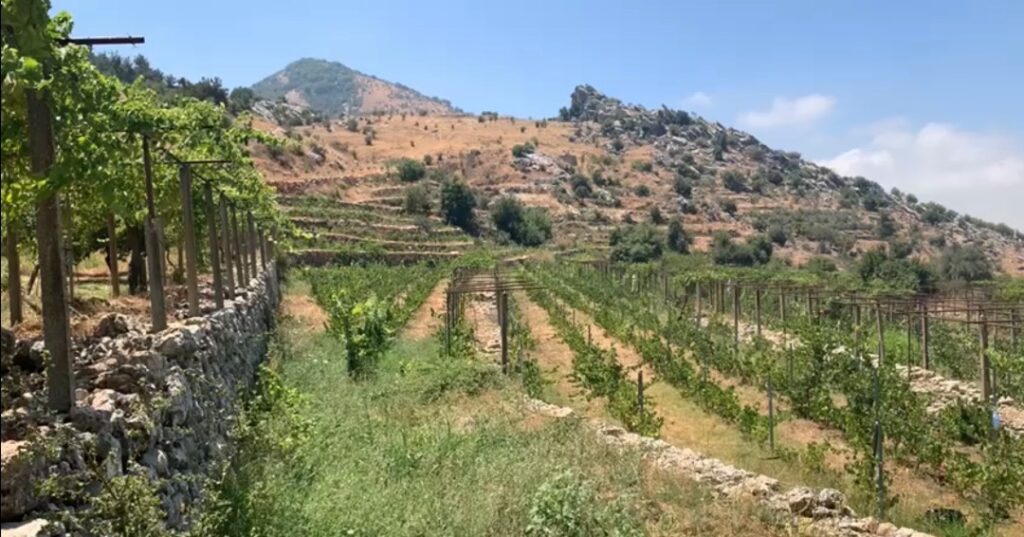

Alqabu Wines: Pure Pleasure From The Lebanese Mountains – Ancient Tradition with French Grapesvines
KFARHOUNA – Lebanon
History: Lebanon’s Ancient Tradition in Winemaking from Phoenicians to the Roman Empire to the French Protectrate
Lebanon has a 5,000-year winemaking history and is one of the oldest wine production regions in the world. The prophet Hosea (780–725 BC) is said to have urged his followers to return to God so that “they shall blossom like the vine; their fame shall be like the wine of Lebanon…
The Phoenicians were instrumental in spreading wine and viticulture throughout the Mediterranean in ancient times. The wines of Byblos were exported to Greece and Egypt during the Old Kingdom (2686 BC–2134 BC). Lebanon wine was highly renowned, with some scholars suggesting that it was crafted from muscat grape varieties.
More…
The wines of Tyre and Sidon were also famous throughout the ancient Mediterranean. Excavations at Tell el-Burak, a Phoenician settlement near Sidon, uncovered a well-preserved wine press dating back to the seventh century BC, along with evidence of nearby vineyards, indicating the site’s role in wine production for overseas trade. Robert Ballard found the wrecks of two Phoenician ships from 750 BC, whose cargo of wine was still intact.
As the first great traders of wine, exporting from their Levantine ports, the Phoenicians seem to have protected it from oxidation with a layer of olive oil, followed by a seal of pinewood and resin—this may be the origin of the Greek taste for retsina.
Wine played an important part in Phoenician religion, and the Greek/Roman god Dionysus/Bacchus may have originated in the wine rituals of Canaan. The great temple at Heliopolis (Baalbek) has many depictions of vines and winedrinking, most famously captured by David Roberts in pictures such as “Baalbec – Ruins of the Temple of Bacchus”. Such rituals may also have influenced the Greek Bacchae, the Jewish Passover Seder feast and the Christian Eucharist. The Bacchus temple in Baalbek outlines the instrumental role that the Phoenicians played in the development of the Ancient World around the Mediterranean sea; their widespread settlements reached Spain.
Phoenician wine is mentioned in the Bible, with Genesis 14:18 recounting how King Melchizedek offered bread and wine (“yayin”) to Abraham, and Hosea 14:8 describes the fame of Lebanon’s wine as exceptional, saying, “his fame shall be like the wine of Lebanon.”
The importance of winemaking in Lebanon continued during the Roman Empire, as evidenced by the stone-carved vines still winding around the columns of the Temple of Bacchus, the Roman god of wine, in the ruins of Baalbek. Some Roman cellars are still in use today. The cellars feature a two-mile-long network of tunnels originally built by the Romans and later revived by the Jesuits, who established the winery in the 19th century.
Middle Ages
Wine production persisted until the seventh century when Lebanon was conquered by Arabs and came under the control of the Caliphate; however, the large indigenous Christian community was permitted to produce wine primarily for religious purposes, although significant quantities were also made for trade.[23]
In the Middle Ages, the fine wines of Tyre and Sidon were highly prized in Europe and traded by merchants from Venice, who controlled those ports for much of the 13th century.”
Alqabu Merlot Limited Edition 2023
48 Bottles
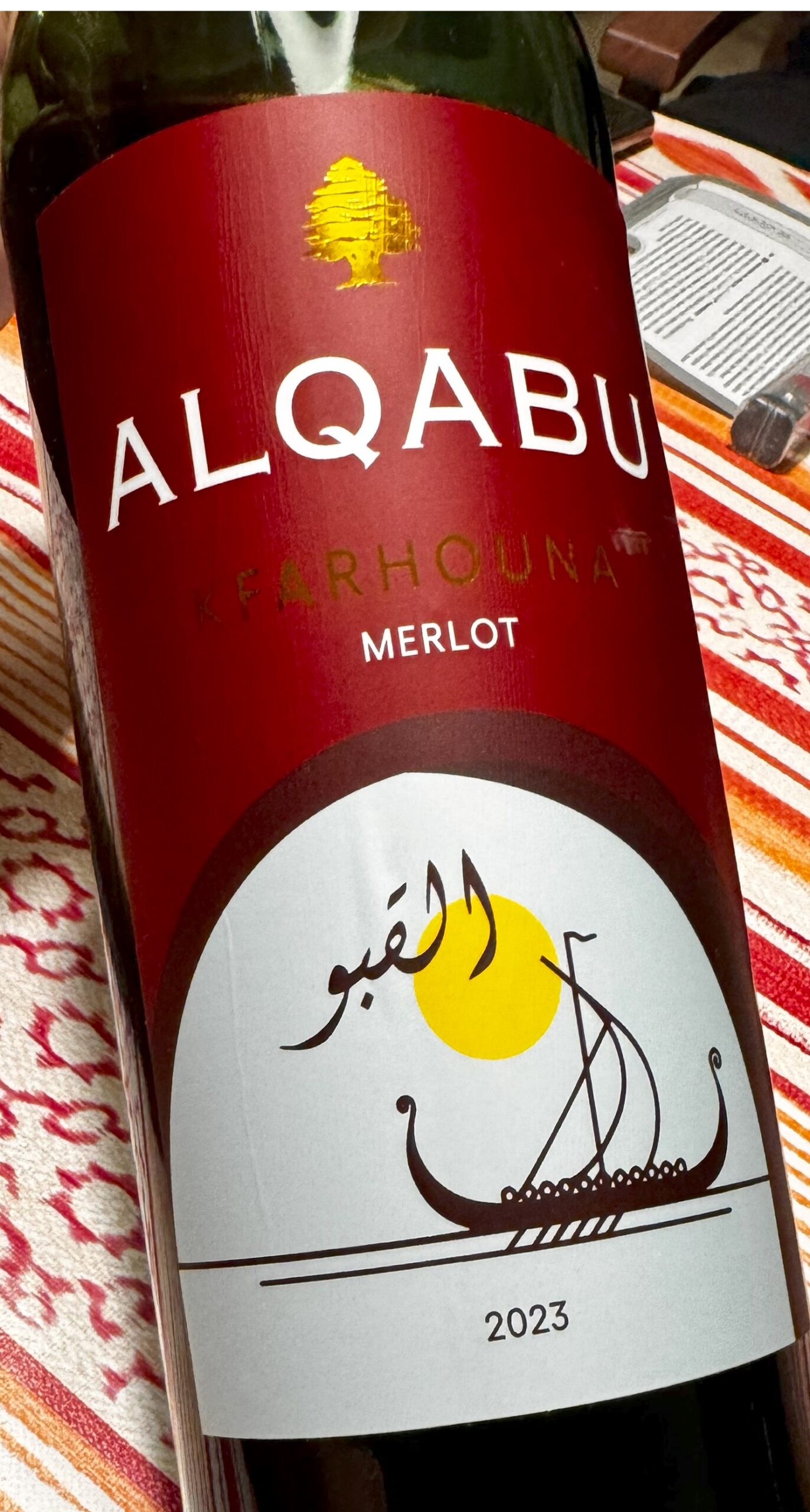
1,000 grapevines were the base of these 48 bottles of hand-made wine.
Location: Kroum & Nssoub, Kfarhouna, (altitude: 1,100 m), Lebanon
Natural fermentation (bio-grade)
No cultured yeast added
Very little sulfites added (bio-grade)
No glyphosates used in the vineyard
Very intense and mineral taste. Goes great with red meats and cheeses.
Alqabu red special and unique edition Merlot Limited Edition 2023:
A rare wine, hand picked and handcrafted.
Enjoy!
Please drink responsibly.
0,75l
Alcohol: 13.5% vol
Cuvé 2024, Limited Edition, (Chardonnay, Muscat, etc.)
586 Bottles

Alqabu: Wine Inspiration from Lebanon
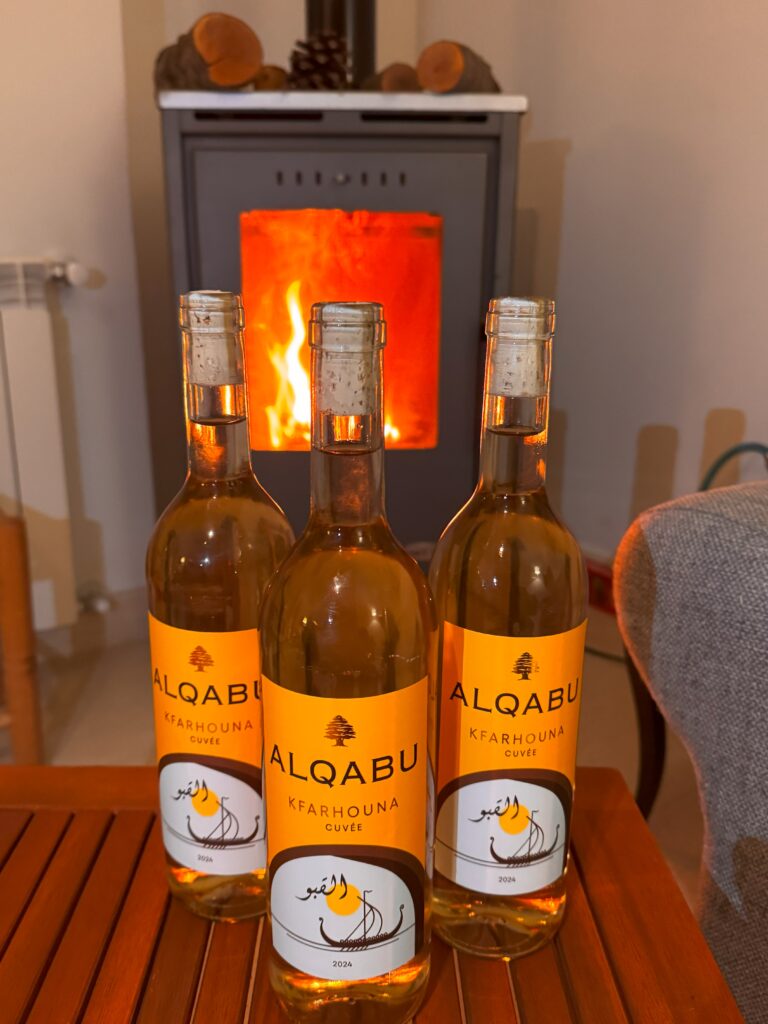
Herkunft
Erleben Sie die Essenz libanesischer Berge.
Reifung
Hergestellt mit traditioneller Handwerkskunst.
Verkostung
Ein Bouquet, das die Sinne verführt.
Geschmack
Voller Körper mit fruchtigen Nuancen.
Alqabu: Ancestors and History
At 1,100 meters above sea level in Kfarhouna (Google: Kfar Huneh), Southern Lebanon, we have started our project by reworking mountainous land which stood idle more than 30 years because of civil war. This land was inherited from our father Najib and his parents who had planted it more 80 years ago with vine, apple, peach and cherry trees. We gave the Kroum & Nssoub new life by plantig 6,000 vine trees while the world was closed in 2020 with the aim of continuing what was started by our dad and connecting to ancient traditions of wine making. It is said that Jesus traveled through Kfarhouna two thousand years ago on his way to Sidon
Our mission is to revive this tradition without harming the environment. We want to show the world that despite politics and conflicts, wine can be grown contributing to well-being of people living in this beautiful part of the word

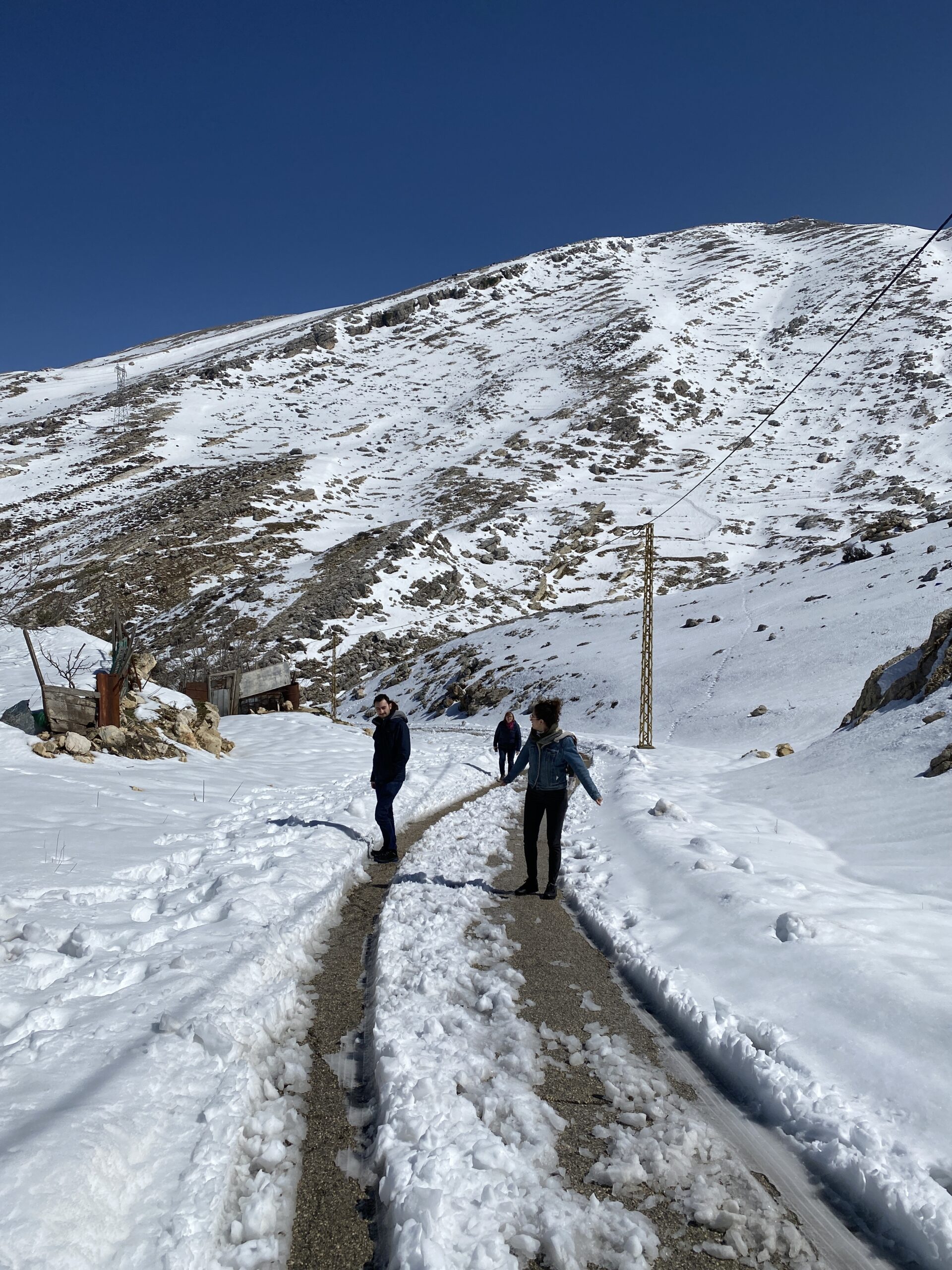
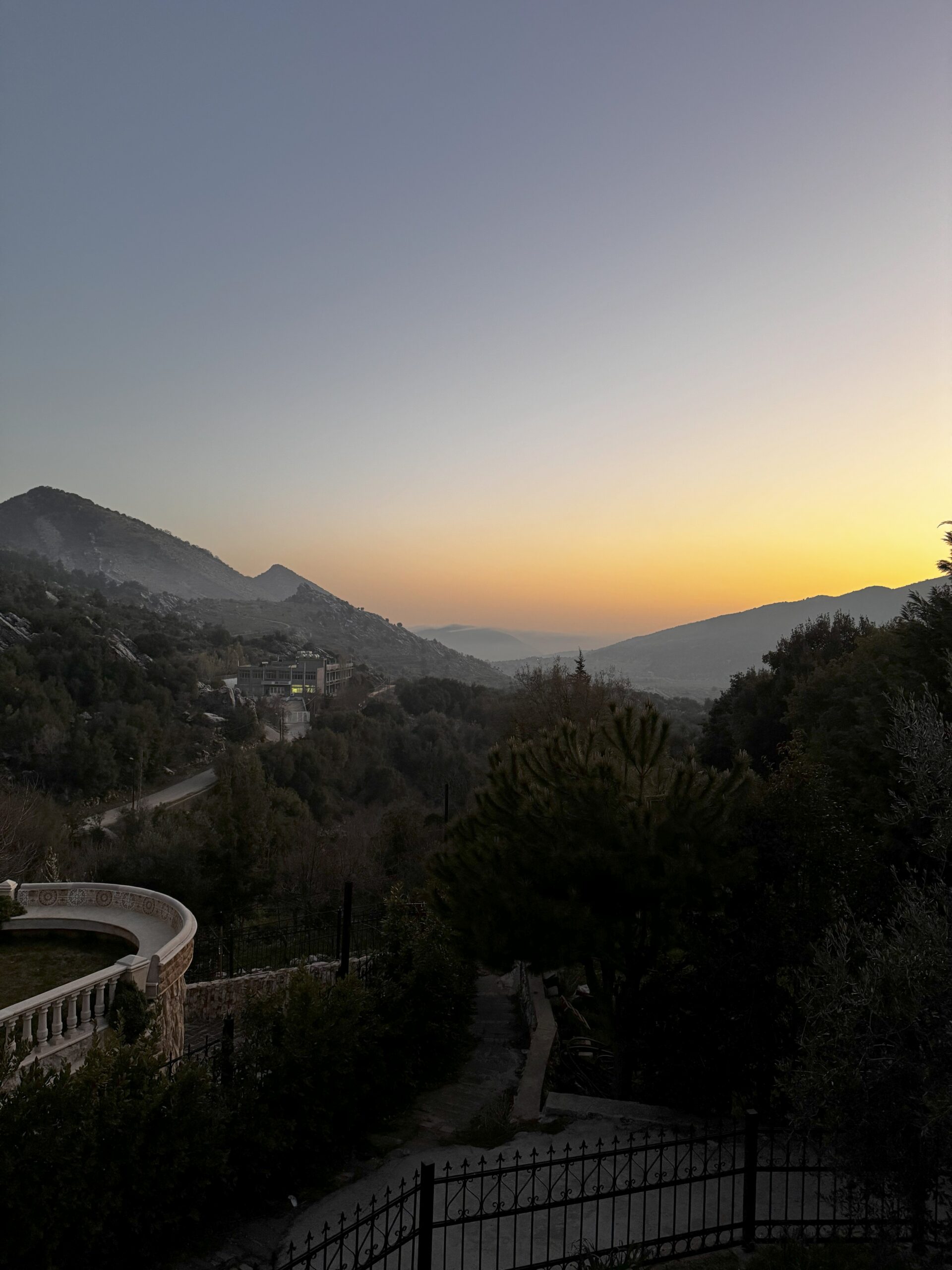
Inspiration from Lebanon: Alqabu
Lebanese wine is a hidden gem of the Mediterranean wine world, characterized by its rich history, unique terroirs and exquisite aromas. In Lebanon’s fertile mountains, such as the famous Jezzine Area, vines thrive in ideal conditions – sunny days, cool nights and mineral-rich soils create the perfect foundation for wines full of character. From full-bodied reds with complex notes of dark fruit and spice to fresh, vibrant whites, Lebanese wine offers an unforgettable taste experience. With a winemaking tradition dating back thousands of years, Lebanese wine combines modern craftsmanship with ancient history, inviting you to discover the essence of the Levant in every glass.
Write us your comments, and welcome to Kfarhouna – rooms are available in a quite and peaceful environment: info(at)alqabu.com
The Hindi Family Estate – Kfarhouna – Caza Jezzine, Lebanon
www.alqabu.com
WhatsApp: +961 70 174 155